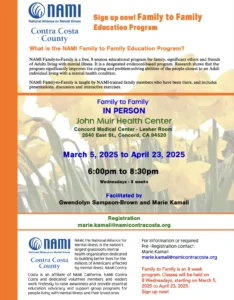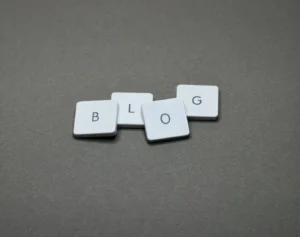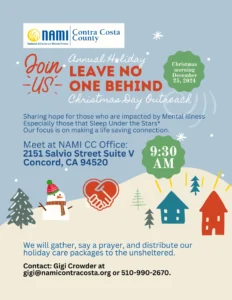By La Tanyua Brown-Thompson, NAMI Contra Costa Board of Directors President
Breaking the Silence: The Reality of Mental Health in BIPOC Communities
Each July, National BIPOC Mental Health Awareness Month offers a chance to raise awareness, foster dialogue, and spotlight the deep-rooted disparities that continue to affect People of Color across the United States. But for those of us living this reality every day, it’s more than just a month. It’s a fight for equity, dignity, and healing in a system not built by us or for us.
For many BIPOC individuals, mental health is more than a diagnosis. It’s a layered experience shaped by cultural expectations, generational trauma, limited access to care, and economic barriers. It’s living in a world that stigmatizes both your skin and your struggle.
In many of our cultures, mental health is not a topic openly discussed. Instead, it’s misunderstood, minimized, or even ignored. We are told to “pray it away,” “toughen up,” or that “what happens in this house stays in this house.” But silence does not heal wounds; it deepens them.
For countless BIPOC individuals, one of the most significant barriers to mental health care is financial. Many cannot afford therapy, counseling, or mental health treatment, let alone find culturally competent providers. And even when help is available, the chances of finding someone who looks like us and who understands our lived experience are scarce.
Stigma in BIPOC communities doesn’t come from one direction; it comes from many. We are stigmatized for needing help, for being “too emotional,” for speaking up, and for showing weakness. And on top of that, we face external stigma from a society that already marginalizes our voices.
This double stigma, internal and external, keeps many of us suffering in silence.
This Minority Mental Health Awareness Month, we have a collective opportunity and responsibility to ignite change. Discuss mental health in your social circles. And if you need support, reach out because you are not alone.
Let’s break the silence, break the stigma, and begin the work of healing together.


